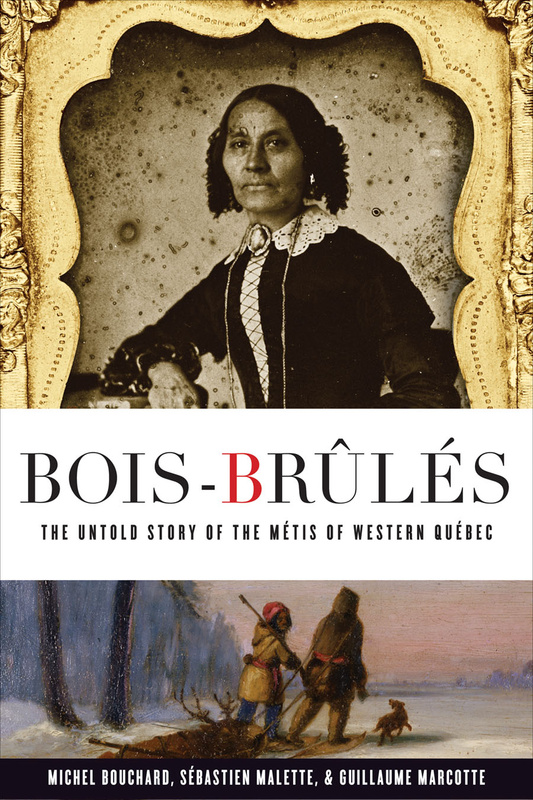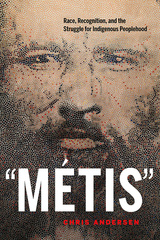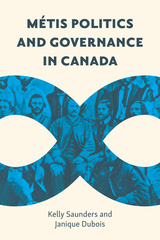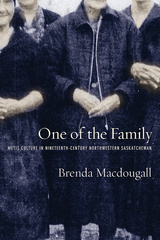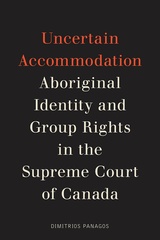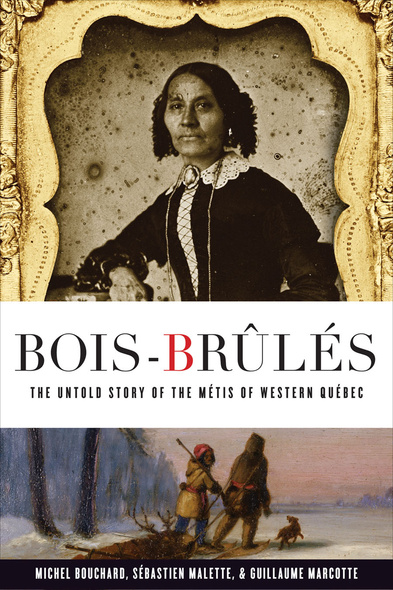
Bois-Brûlés
The Untold Story of the Métis of Western Québec
We think of Métis as having exclusively Prairie roots, but what about their presence in Quebec? The province doesn’t recognize a historical Métis community within its territory, and the Métis National Council contests the existence of any Métis east of Ontario. Quebec residents who seek recognition as Métis under the Canadian Constitution therefore face an uphill legal and political battle. Who is right?
Bois-Brûlés, previously available only in French, examines the archival and ethnographic evidence for a historical Métis community in the larger Outaouais region, piecing together a riveting and previously untold history. Scottish and French-Canadian traders and Indigenous women – along with their Bois-Brûlé children – both worked for and competed against fur trade companies in the early nineteenth century, establishing themselves in the unsurveyed lands still known as “Indian country.” As the fur trade declined, these small communities remained.
This controversial work challenges head-on two powerful nationalisms – Métis and Québécois – that see Quebec Métis as “race-shifting” individuals intent on undermining the First Nations of the province. The authors evaluate the strength of community claims to provide a nuanced analysis of the historical basis for a distinctly Métis identity that can be traced all the way to today.
The book will appeal not only to scholars and students of Métis, First Nations, or Indigenous studies, Canadian studies, anthropology, history, legal studies, and political science but also broadly to members of Métis associations and anyone interested in Métis and Canadian history.
Methodologically, this is a fascinating exploration.
There have been sharp debates about Métis identity in many parts of Canada. Bois-Brûlés enters this field through its strong scholarly commitment to archival and ethnographic evidence. It adds further nuance and subtlety to these debates and sheds significant light on a contested field.
Michel Bouchard is a professor of anthropology at the University of Northern British Columbia and secretary of the World Council of Anthropological Associations. He co-authored Songs upon the Rivers: The Buried History of the French-Speaking Canadiens and Métis from the Great Lakes and the Mississippi across to the Pacific (with Robert Foxcurran and Sébastien Malette) and Les Bois-Brûlés de l’Outaouais: Une étude ethnoculturelle des Métis de la Gatineau (with Malette and Guillaume Marcotte).
Sébastien Malette is an associate professor of law and legal studies at Carleton University and a member of the university’s Indigenous Education Council. He co-authored Songs upon the Rivers: The Buried History of the French-Speaking Canadiens and Métis from the Great Lakes and the Mississippi across to the Pacific (with Michel Bouchard and Robert Foxcurran) and Les Bois-Brûlés de l’Outaouais: Une étude ethnoculturelle des Métis de la Gatineau (with Bouchard and Guillaume Marcotte).
Guillaume Marcotte is an independent scholar and historian. He is the author of Les francophones et la traite des fourrures du Grand Témiscamingue: Un dictionnaire biographique, 1760–1870 and co-author of Les Bois-Brûlés de l’Outaouais: Une étude ethnoculturelle des Métis de la Gatineau (with Michel Bouchard and Sébastien Malette). He has also published in a variety of scholarly journals and has been studying the Hudson’s Bay Company Archives for over a decade.
Foreword / Michel Noël
A Note for Readers
Introduction
Part 1: Theoretical and Methodological Considerations
1 Studying Métis Identities
2 Métis Identities and Ethnonyms
Part 2: The Métis Presence in the Outaouais Region
3 The Outaouais Fur Trade of the Nineteenth Century
4 Shared Cultural Traits of the Bois-Brûlés
5 Algonquin Half-Breeds, Priests, and the Métis Collectivity
Part 3: Métis of the Gatineau Valley – Rivière Désert, Lac-Sainte-Marie, and Lac des Sables
6 Crowded Crossroads
7 Comparing Lac-Sainte-Marie and Sault Ste. Marie
8 Louis Riel and the McGregors of the Lièvre
Part 4: Historical Continuity and Contemporary Concerns
9 A New Era: The Creation of the Maniwaki Reserve
10 Petitions and Politics: The Maniwaki Reserve and the Forest Industry
11 The Great Awakening: Outaouais Métis Voices, 1969–2017
Conclusion: Toward Recognition?
Appendix: Principal Métis Families of the Gatineau
Notes; Works Cited; Index

